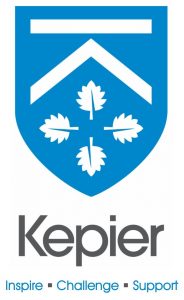What is GCSE History?
The History GCSE course runs for 2 years and will give you a full GCSE in History. The aim of the course is to help you to understand some of the most important events that have happened in Britain and the World. We also want to help you to build skills that will be useful when you leave school.
Course Details
| Qualification | Exam Board | Specification |
| GCSE History | AQA | 8145 (RJ) |
Department Leader

Mr S. Forsyth
Department Leader for History
Course Overview
The video below explains the different topics you will study on the History course:
The History GCSE covers a wide range of topics and is divided into two papers; ‘Understanding the Modern World’ and ‘Shaping the Nation’. Module 1, which is started at the end of Year 9, examines conflict and tension between 1919-39. Learners will explore peace-making efforts after the First World War, the weaknesses of the League of Nations and Hitler’s foreign policy, which led to the outbreak of World War Two. In Module 2, we will look at opportunity and inequality in the United States between 1919 and 1973. This will include period studies of prosperity in the Roaring Twenties, the Great Depression of the 1930s and the Civil Rights Movement of the 1960s and 1970s. Module 3 is an in-depth study of Norman England from 1066-1100. Learners will be taught about the Norman Conquest and life under the Normans, as well as studying a specific Norman site within the UK. The final Module is a thematic study which explores how medicine and public health have developed between c1000 to the modern day. Learners will study how war, religion, chance, government intervention as well as the roles of individuals have encouraged or inhibited change.
You will take TWO exams at the end of Year 11. In class we will do lots of different activities that will help you to understand what has happened in the past. This will include video and audio footage to help you relive past events. We will also look at photographs, paintings, cartoons and written text. The teaching styles that are used will mean you are always doing lots of different activities, similar to your Year 9 lessons.
During Key Stage 4 lessons, you will develop lots of skills that will help you; teamwork and independent research, analysis, evaluation as well as how to effectively communicate your knowledge and understanding. For those who need it, extra help is given after school. This can involve help with homework or any topics that you are worried about. In the final year of the course, revision classes will take place after school, if you should need them.
With further training and study, learners who have taken History at GCSE have gone on to jobs in law, the police, accountancy and education. The skills you learn during your course will be valuable to you in whichever career you choose.
Got A Question?
If you have a question about History you can use the form below to contact Mr Forsyth, Department Leader for History.


 Important Notice – Year 9 Options
Important Notice – Year 9 Options